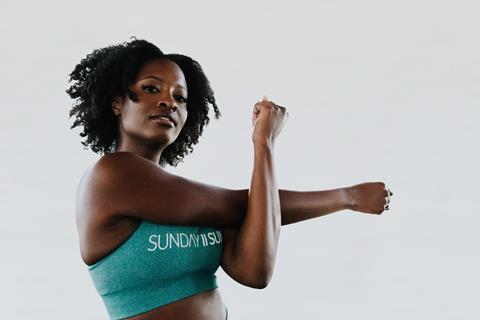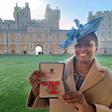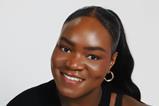Black people are more prone to certain illnesses and Marcia Dixon recognises that being a Christian cushioned her from this information and the seriousness of some health conditions

The Pentecostal church I was raised in didn’t talk much about the need to maintain physical health. I believe this was because they took to heart the Apostle Paul’s statement in 1 Timothy 4:8 (KJV): “For bodily exercise profiteth little: but godliness is profitable unto all things, having promise of the life that now is, and of that which is to come.”
Conversely, I heard many messages telling Christians they could attain and maintain spiritual health through prayer, fasting, fellowshipping with fellow believers and by trusting God. Now that I’m older I wonder why physical health wasn’t emphasised more, especially as black people are more prone to certain preventable illnesses.
Learning more about health
I have always had an interest in health and fitness. At school I enjoyed human biology and received an A in my O Level exam. Today, I regularly read articles on the subject.
During various periods of my life, I have made efforts to improve my health and fitness. In my 20s I joined a gym, went on a diet and lost weight – but I’ve since put it back on (as you do). And eight years ago, I experienced a bout of illness that caused me to lose a lot of weight. It was the slimmest I had been for a long time! Thankfully I have never been seriously ill, but have had friends who have and was able to support them.
Suffering disproportionally
While I’ve always been aware that no matter our age, nationality or race we can all experience bad health, it is only recently – after working on several health awareness campaigns aimed at the black community – that I discovered that black people suffer from certain health conditions disproportionately when compared to others.
There are studies that show black women are five times more likely to die because of complications in their pregnancies than white women and three times more likely to suffer from fibroids than their white counterparts.
Research revealed that almost two-thirds of black Britons believe the NHS gives white people better care
People of Black and South Asian origin are at a higher risk of developing Type 2 diabetes at a younger age than their white counterparts and there are similar findings where blood pressure is concerned. High blood pressure can cause strokes and heart attacks.
It is also true that black people are more likely to get health issues diagnosed late because they often only go to the doctors as a last resort. Research conducted by Clearview Research published in 2020 revealed that almost two-thirds of black Britons believe the NHS gives white people better care. That negative view of the health service is shared by a majority of black people of almost all ages, and is held especially strongly by black women.
An NHS campaign I worked on revealed that one in ten (11 percent) black women who have been invited to screening have never attended, higher than the 7 percent England average. If you are both black, female and Christian, there is a triple whammy of distrust around the medical profession which means there is a higher risk of illness.
The message is finally changing
On reflection, being a Christian cushioned me from this information and the seriousness of some health conditions. This was because the subliminal messaging in Church was that good health was just a prayer away. This view was confirmed by knowing people miraculously healed from terminal cancer, as well as hearing testimonies of people who were healed of other conditions following prayer.
On reflection, this lack of emphasis on the importance on health, fitness and preventative health care has not been a good thing. Thankfully, due to the rise of social media, the voices of Christian fitness trainers encouraging believers to be health conscious are now being heard.
One such person is Lola Olarewaju. About ten years ago she released a fitness video. During an interview, Lola stressed that we need our bodies to fulfil God’s purposes and if Christians have no other incentive for being fit, this is it.
Like many women, I consider myself reasonably healthy but could be healthier if I lost excess weight, made more healthy food choices, and exercised more. Unfortunately, I have a sweet tooth and love deserts, and am more apt to choose a packet of crisps to snack on as opposed to fruit. I’m hoping some of you can understand my dilemma!
I’ve also recognised that as we get older, it’s even more imperative we focus on keeping fit and healthy, and go to the doctor if something doesn’t feel right. It’s usually in our mature years that we are likely to experience more serious illnesses and the earlier a disease is diagnosed, the more likely we are to recover from it.
The importance of role models
To help us on our fitness journey it can be good to find a fitness role model who inspires. Mine is the Christian body builder, Ernestine Shepherd.
Ernestine started her fitness journey aged 56, while out shopping for a swimming costume with her sister, Velvet. They both recognised the need to get fit and started going to the gym. Sadly, not long after, Velvet died unexpectedly of a brain aneurysm. After this, Ernestine fell into a deep depression until she saw her sister in a dream, who encouraged her to pursue her journey even more.
Black women are five times more likely to die because of complications in their pregnancies than white women
Although now in her 80s, Ernestine remains committed to fitness – she runs 80 miles a week and eats 1,700 calories a day, leads fitness classes and has collected numerous accolades along the way. At one point, Ernestine was named by the Guinness Book of World Records as the oldest body builder in the world. What’s not to be inspired by?
I am now post-menopausal and have experienced the accompanying weight gain that sometimes accompanies the menopause. I am determined to lose it by changing my diet, walking at least 30 minutes a day, and going to the gym.
An important part to play
It’s my belief that the Church can play a major role in supporting people on their fitness journeys. I’ve attended church events where Christians who are part of the medical profession have given talks about health matters such as breast cancer or the menopause and carried out tests for high blood pressure and diabetes. And I know of churches that run fitness classes for members and as a form of outreach for the wider community. I’ve even organised a few Zoom meetings myself where we’ve discussed health and fitness.
We might not all be able to run marathons and follow a strict diet but as Christians, we do need to prioritise health, whatever that might look like. This will help us to fulfil God’s wonderful and glorious purposes while we are here on this earth.

































No comments yet